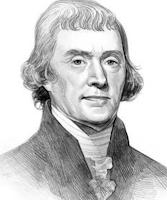Reduction in civil services upper-age limit
An expert panel called for a reduction in the upper-age limit of candidates aspiring to get into India’s premier civil services, prodding the
government to break from a decades-long practice of raising the ceiling under political compulsion. The panel headed by former education secretary BS Baswan submitted its report to the Union Public Service Commission (UPSC) that conducts the gruelling examination that is considered among India’s toughest.

Details
- The report will first be examined by the commission…. A decision will be taken by the government in consultation with the UPSC that will give its views on the report.
- The examination is conducted in three stages -- preliminary, main, and interview -- to recruit officers to the Indian Administrative Service (IAS), Indian Foreign Service (IFS) and Indian Police Service (IPS), among others.
- Half-a-million young men and women sit for the gruelling examination every year that offers less than a one in 400 chance of success.
- Those who succeed often don’t score more than 50% in the main written examination. A Lady Sri Ram COLLEGE alumnus, Tina Dabi had scored 49.5% and topped the examination this year.
- The upper age is relaxed by five years for candidates from the scheduled caste and scheduled tribes while those from other backward classes get a three-year relaxation. Disabled candidates get an additional 10-year cut.
- Over the past 50 years, the exam has remained at the centrestage and any tinkering has proved to be politically sensitive.
- In the past, several panels have advocated a reduction in the upper-age limit but successive governments have raised it,from 26 in the 1960s to 28 in the 1980s and now, 32.
- Attempts to arrest this rise have been nixed especially by parliamentarians from rural areas, who say slashing the upper-age limit will hurt candidates from under-developed regions.
Phased change
- The panel recommended that the age be reduced in a phased manner spread over several years and not in one go.
- The step was suggested keeping in mind the thousands of people who spend years preparing for the examination and whose CAREERS might be jeopardized if they found themselves ineligible for the test in the middle of the process.
- Baswan told that the panel would “prepare a road map which will give all candidates sufficient time to adapt to the new system”.
Political compulsions
- In principle, the Narendra Modi government – like the previous Congress-led UPA – is all for reducing the entry age into civil services.But any change to the examination is a politically sensitive topic.
- In 2013 , parliamentarians forced the then Manmohan Singh government to drop an English essay paper of 100 marks and revert to an earlier system where candidates had to score qualifying marks in the paper. But their marks scored in the language paper were not counted for ranking successful candidates.
- In 2014, the Modi government removed a 22-mark English section in the first of the three-stage examination process.
- And in 2015, Prime Minister Narendra Modi decided that marks scored in the civil services aptitude test (CSAT) paper at the preliminary examination would not be used to shortlist candidates.
- The CSAT examination was introduced in 2011 by the UPA government but ran intro controversy with many students and political leaders saying it favoured urban and English-speaking candidates.

Comments
Post a Comment